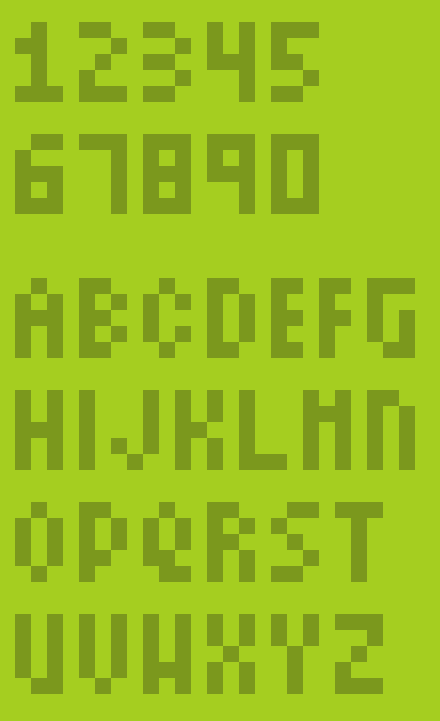I’m posting my email setup here. The end result will:
Note: My set up is pretty standard, except that rDNS for smtp.za3k.com resolves to za3k.com because I only have one IP. You may need to change your hostnames if you’re using mail.example.com or smtp.example.com.
Install debian packages
sudo apt-get install postfix # Postfix \
dovecot-core dovecot-imapd dovecot-lmtpd # Dovecot \
postgresql dovecot-pgsql postfix-pgsql # Postgres \
opendkim opendkim-tools # DKIM
Set up security. smtp.za3k.com cert is at /etc/certs/zak3.com.pem, the key is at /etc/ssl/private/smtp.za3k.com.key. dhparams for postfix are at /etc/postfix/dhparams.pem. (If you need a certificate and don’t know how to get one, you can read Setting up SSL certificates using StartSSL)
Install Postfix
# /etc/postfix/master.cf
smtp inet n - - - - smtpd
submission inet n - - - - smtpd
-o syslog_name=postfix/submission
-o smtpd_tls_security_level=encrypt
-o smtpd_sasl_auth_enable=yes
-o smtpd_reject_unlisted_recipient=no
-o milter_macro_daemon_name=ORIGINATING
# /etc/postfix/main.cf additions
# TLS parameters
smtpd_tls_cert_file=/etc/ssl/certs/smtp.za3k.com.pem
smtpd_tls_key_file=/etc/ssl/private/smtp.za3k.com.key
smtpd_use_tls=yes
smtpd_tls_mandatory_protocols=!SSLv2,!SSLv3
smtp_tls_mandatory_protocols=!SSLv2,!SSLv3
smtpd_tls_protocols=!SSLv2,!SSLv3
smtp_tls_protocols=!SSLv2,!SSLv3
smtpd_tls_exclude_ciphers = aNULL, eNULL, EXPORT, DES, RC4, MD5, PSK, aECDH, EDH-DSS-DES-CBC3-SHA, EDH-RSA-DES-CDC3-SHA, KRB5-DE5, CBC3-SHA
# Relay and recipient settings
myhostname = za3k.com
myorigin = /etc/mailname
mydestination = za3k.com, smtp.za3k.com, localhost.com, localhost
relayhost =
mynetworks_style = host
mailbox_size_limit = 0
inet_interfaces = all
smtpd_relay_restrictions = permit_mynetworks,
permit_sasl_authenticated,
reject_unauth_destination
alias_maps = hash:/etc/aliases
local_recipient_maps = $alias_maps
mailbox_transport = lmtp:unix:private/dovecot-lmtp
Install Dovecot
# /etc/dovecot/dovecot.cf
mail_privileged_group = mail # Local mail
disable_plaintext_auth = no
protocols = imap
ssl=required
ssl_cert = </etc/ssl/certs/imap.za3k.com.pem
ssl_key = </etc/ssl/private/imap.za3k.com.key
# IMAP Folders
namespace {
inbox = yes
mailbox Trash {
auto = create
special_use = \Trash
}
mailbox Drafts {
auto = no
special_use = \Drafts
}
mailbox Sent {
auto = subscribe
special_use = \Sent
}
mailbox Spam {
auto = subscribe
special_use = \Junk
}
}
# Expunging / deleting mail should FAIL, use the lazy_expunge plugin for this
namespace {
prefix = .EXPUNGED/
hidden = yes
list = no
location = maildir:~/expunged
}
mail_plugins = $mail_plugins lazy_expunge
plugin {
lazy_expunge = .EXPUNGED/
}
# /etc/postfix/main.cf
# SASL authentication is done through Dovecot to let users relay mail
smtpd_sasl_type = dovecot
smtpd_sasl_path = private/auth
Set up the database and virtual users. Commands
# Create the user vmail for storing virtual mail
# vmail:x:5000:5000::/var/mail/vmail:/usr/bin/nologin
groupadd -g 5000 vmail
mkdir /var/mail/vmail
useradd -M -d /var/mail/vmail --shell=/usr/bin/nologin -u 5000 -g vmail vmail
chown vmail:vmail /var/mail/vmail
chmod 700 /var/mail/vmail
psql -U postgres
; Set up the users
CREATE USER 'postfix' PASSWORD 'XXX';
CREATE USER 'dovecot' PASSWORD 'XXX';
; Create the database
CREATE DATABASE email;
\connect email
; Set up the schema
CREATE TABLE aliases (
alias text NOT NULL,
email text NOT NULL
);
CREATE TABLE users (
username text NOT NULL,
domain text NOT NULL,
created timestamp with time zone DEFAULT now(),
password text NOT NULL
);
REVOKE ALL ON TABLE aliases FROM PUBLIC;
GRANT ALL ON TABLE aliases TO postfix;
GRANT ALL ON TABLE aliases TO dovecot;
REVOKE ALL ON TABLE users FROM PUBLIC;
GRANT ALL ON TABLE users TO dovecot;
GRANT ALL ON TABLE users TO postfix;
# /etc/dovecot/dovecot.conf
# Since we're giving each virtual user their own directory under /var/mail/vmail, just use that directly and not a subdirectory
mail_location = maildir:~/
# /etc/dovecot/dovecot-sql.conf defines the DB queries used for authorization
passdb {
driver = sql
args = /etc/dovecot/dovecot-sql.conf
}
userdb {
driver = prefetch
}
userdb {
driver = sql
args = /etc/dovecot/dovecot-sql.conf
}
# /etc/postfix/main.cf
pgsql:/etc/postfix/pgsql-virtual-aliases.cf
local_recipient_maps = pgsql:/etc/postfix/pgsql-virtual-mailbox.cf
# /etc/postfix/pgsql-virtual-aliases.cf
# hosts = localhost
user = postfix
password = XXXXXX
dbname = email
query = SELECT email FROM aliases WHERE alias='%s'
# /etc/postfix/pgsql-virtual-mailbox.cf
# hosts = localhost
user = postfix
password = XXXXXX
dbname = email
query = SELECT concat(username,'@',domain,'/') as email FROM users WHERE username='%s'
# /etc/dovecot/dovecot-sql.conf
driver = pgsql
connect = host=localhost dbname=email user=dovecot password=XXXXXX
default_pass_scheme = SHA512
password_query = SELECT \
CONCAT(username,'@',domain) as user, \
password, \
'vmail' AS userdb_uid, \
'vmail' AS userdb_gid, \
'/var/mail/vmail/%u' as userdb_home \
FROM users \
WHERE concat(username,'@',domain) = '%u';
user_query = SELECT username, \
CONCAT('maildir:/var/mail/vmail/',username,'@',domain) as mail, \
'/var/mail/vmail/%u' as home, \
'vmail' as uid, \
'vmail' as gid \
FROM users \
WHERE concat(username,'@',domain) = '%u';
Set up users. Example user creation:
# Generate a password
$ doveadm pw -s sha512 -r 100
Enter new password: ...
Retype new password: ...
{SHA512}.............................................................==
psql -U dovecot -d email
; Create a user za3k@za3k.com
mail=# INSERT INTO users (
username,
domain,
password
) VALUES (
'za3k',
'za3k.com'
'{SHA512}.............................................................==',
);
Set up aliases/redirects. Example redirect creation:
psql -U dovecot -d email
; Redirect mail from foo@example.com to bar@example.net
mail=# INSERT INTO users ( email, alias ) VALUES (
'bar@example.net',
'foo@example.com'
);
Test setup locally by hand. Try using TELNET. Test remote setup using STARTSSL. This is similar to the previous step, but to start the connection use:
openssl s_client -connect smtp.za3k.com:587 -starttls smtp
Make sure to test email to addresses at your domain or that you’ve set up (final destination), and emails you’re trying to send somewhere else (relay email)
A small digression: port 25 is used for unencrypted email and support STARTTLS, 587 is used for STARTTLS only, and 465 (obsolete) is used for TLS. My ISP, Comcast, blocks access to port 25 on outgoing traffic.
Make sure you’re not running an open relay at http://mxtoolbox.com/diagnostic.aspx
- Set your DNS so that the MX record points at your new mailserver. You’ll probably want a store and forward backup mail server (mine is provided by my registrar). Email should arrive at your mail server from now on. This is the absolute minimum setup. Everything from here on is to help the community combat spam (and you not to get blacklisted).
Set up DKIM (DomainKeys Identified Mail). DKIM signs outgoing mail to show that it’s from your server, which helps you not get flagged as spam.
None of these files or folders exist to begin with in debian.
# Add to /etc/opendkim.conf
KeyTable /etc/opendkim/KeyTable
SigningTable /etc/opendkim/SigningTable
ExternalIgnoreList /etc/opendkim/TrustedHosts
InternalHosts /etc/opendkim/TrustedHosts
LogWhy yes
# /etc/opendkim/TrustedHosts
127.0.0.1
[::1]
localhost
za3k.com
smtp.za3k.com
mkdir -p /etc/opendkim/keys/za3k.com
cd /etc/opendkim/keys/za3k.com
opendkim-genkey -s default -d za3k.com
chown opendkim:opendkim default.private
# /etc/opendkim/KeyTable
default._domainkey.za3k.com za3k.com:default:/etc/opendkim/keys/za3k.com/default.private
# /etc/opendkim/SigningTable
za3k.com default._domainkey.za3k.com
Display the DNS public key to set in a TXT record with:
# sudo cat /etc/opendkim/keys/za3k.com/default.txt
default._domainkey IN TXT ( "v=DKIM1; k=rsa; "
"p=MIGfMA0GCSqGSIb3DQEBAQUAA4GNADCBiQKBgQCggdv3OtQMek/fnu+hRrHYZTUcpUFcSGL/+Sbq+GffR98RCgabx/jjPJo3HmqsB8czaXf7yjO2UiSN/a8Ae6/yu23d7hyTPUDacatEM+2Xc4/zG+eAlAMQOLRJeo3z53sNiq0SmJET6R6yH4HCv9VkuS0TQczkvME5hApft+ZedwIDAQAB" ) ; ----- DKIM
# My registrar doesn't support this syntax so it ends up looking like:
$ dig txt default._domainkey.za3k.com txt
default._domainkey.za3k.com. 10800 IN TXT "v=DKIM1\; k=rsa\; p=MIGfMA0GCSqGSIb3DQEBAQUAA4GNADCBiQKBgQCggdv3OtQMek/fnu+hRrHYZTUcpUFcSGL/+Sbq+GffR98RCgabx/jjPJo3HmqsB8czaXf7yjO2UiSN/a8Ae6/yu23d7hyTPUDacatEM+2Xc4/zG+eAlAMQOLRJeo3z53sNiq0SmJET6R6yH4HCv9VkuS0TQczkvME5hApft+ZedwIDAQAB"
# Uncomment in /etc/default/opendkim
SOCKET="inet:12345@localhost" # listen on loopback on port 12345
# /etc/postfix/main.cf
# DKIM
milter_default_action = accept
milter_protocol = 6
smtpd_milters = inet:localhost:12345
non_smtpd_milters = inet:localhost:12345
Set up SPF (Sender Policy Framework). SPF explains to other services which IPs can send email on your behalf. You can set up whatever policy you like. A guide to the syntax is at: http://www.openspf.org/SPF_Record_Syntax. Mine is
@ 10800 IN TXT "v=spf1 +a:za3k.com +mx:za3k.com ~all"
You should also be verifying this on your end as part of combating spam, but as far as outgoing mail all you need to do is add a TXT record to your DNS record.
Set your rDNS (reverse DNS) if it’s not already. This should point at the same hostname reported by Postfix during SMTP. This will be handled by whoever assigns your IP address (in my case, my hosting provider).
- Test your spam reputability using https://www.mail-tester.com or https://www.port25.com/support/authentication-center/email-verification. You can monitor if you’re on any blacklists at http://mxtoolbox.com/blacklists.aspx.
Set up DMARC. DMARC declares your policy around DKIM being mandatory. You can set up whatever policy you like. Mine is
_dmarc 10800 IN TXT "v=DMARC1;p=reject;aspf=s;adkim=s;pct=100;rua=mailto:postmaster@za3k.com"


